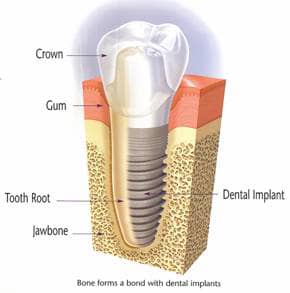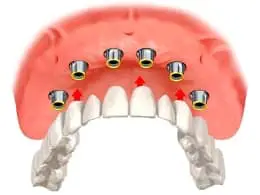I’m going to get dental implants but can’t decide if I want to do that this year or next. If they’re tax-deductible, I’d like to squeeze in the dental implants before the end of the year. If they’re not, then I’m going to wait. We usually get a bonus at the end of the year at work and I can pay for it more easily that way.
Kevin
Dear Kevin,

I’m really impressed you have that type of foresight in dealing with your finances. There is a way to deduct both medical and dental expenses, but there are some restrictions. You can get all the details at the IRS website on Topic No. 502 Medical and Dental Expenses. However, I can give you the easy version here.
Dental implants count because they affect the structure and function of your body. This is specifically mentioned, so that helps if it ever came to an audit.
However, to deduct medical expenses it will mean itemizing your deductions. This is only useful to you if your write-offs are greater than the standard deduction. The good news is that will include all of your medical (and dental) expenses, not just your dental implants.
There is a small catch though. You can only deduct expenses greater than 7.5% of your income. Let’s say you make $40K a year. You would have to eat the first $3,000 of those expenses before it starts lowering your tax obligation.
Don’t Put Off Replacing Teeth
It will be fine to wait until something like a bonus comes in before getting your dental implants. However, you need to put some type of replacement there in the meantime. There are plenty of inexpensive, temporary tooth replacement options, the cheapest would be a dental flipper.
If you don’t put something there to hold the space open, the other teeth will shift or tip into the empty space. Then, you won’t have enough room to replace the tooth when you’re ready.
This blog is brought to you Atlanta Periodontist Dr. David Pumphrey.









